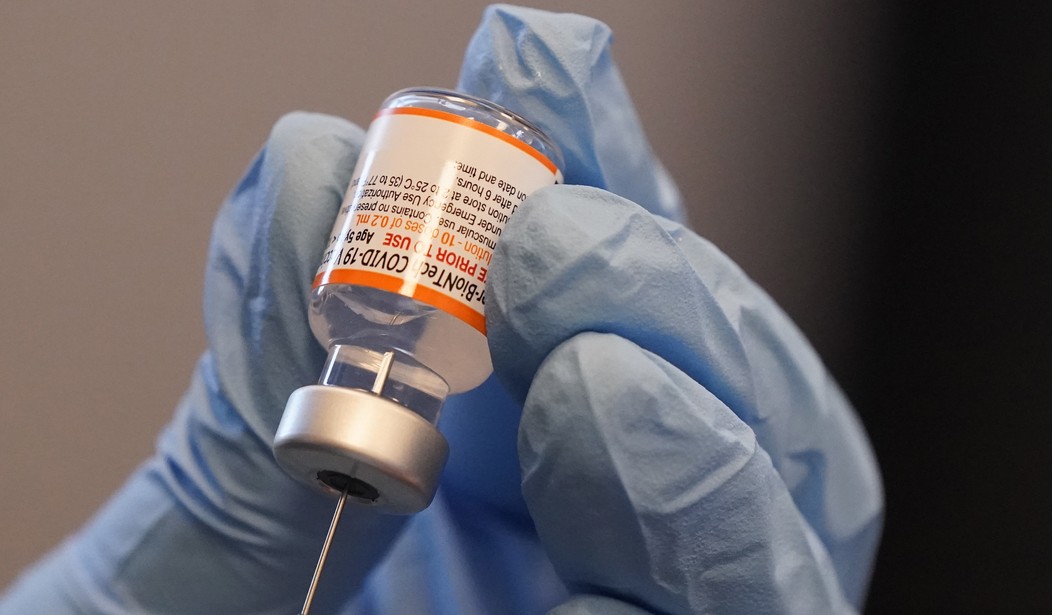Among the founding characteristics of the US is the transparency of our government. Freedom of Information Act Requests have become commonplace when members of the public seek to bring light to the workings of government. I have filed many through my capacities as a political consultant and now more recently as a journalist. To this day, I have numerous outstanding FOIA requests which deal with information about COVID, many of them delayed because they have found my work as a journalist at RedState as “not real journalism.” Unfortunately, I do not have the financial resources to mount a legal challenge to their statements, so now I just have to get in line and wait for my requested information to return.
Fortunately for us, some organizations have the resources to take on these lying sacks of crap in government, and the organization called “Public Health and Medical Professionals for Transparency” filed suit against the FDA and Pfizer regarding their plan to take decades to release the data regarding the vaccines. On Thursday, a US District Judge released a decision that ordered the FDA and Pfizer to release the vaccine data – data they had initially proposed to release at a rate of 500 pages per month – at an astounding rate of 55,000 pages per month. This accelerates the release by decades, with it to be completed within just a few years.
Pfizer and the FDA attempted to argue that the information was privileged and required review before it was released, thus requiring a longer release period. The Judge didn’t buy that:
Here, the Court recognizes the “unduly burdensome” challenges that this FOIA request may present to the FDA. See generally ECF Nos. 23, 30, 34. But, as expressed at the scheduling conference, there may not be a “more important issue at the Food and Drug Administration . . . than the pandemic, the Pfizer vaccine, getting every American vaccinated, [and] making sure that the American public is assured that this was not [] rush[ed] on behalf of the United States . . . .” Accordingly, the Court concludes that this FOIA request is of paramount public importance. [emphasis added]
The court recognized a very similar argument that I have attempted to make regarding my own FOIA requests to the NIH and CDC, which again, they unilaterally denied. That argument is that delaying the release of information and data is sometimes just as bad as denying it.
And “Congress has long recognized that ‘information is often useful only if it is timely’ and that, therefore ‘excessive delay by the agency in its response is often tantamount to denial.’” Open Soc’y Just. Initiative v. CIA, 399 F. Supp. 3d 161, 165 (S.D.N.Y. 2019) (quoting H.R. REP. NO. 93-876, at 6271 (1974)).
The irony of this statement is not lost on me, as Congress has denied another request of information I made, specifically regarding the January 6th riots, and video coverage from them. Congress’s response? FOIA only applies to Executive Agencies.
“[S]tale information is of little value.” Payne Enters., Inc. v. United States, 837 F.2d 486, 494 (D.C. Cir. 1988). The Court, agreeing with this truism, therefore concludes that the expeditious completion of Plaintiff’s request is not only practicable, but necessary. See Bloomberg, L.P. v. FDA, 500 F. Supp. 2d 371, 378 (S.D.N.Y. Aug. 15, 2007) (“[I]t is the compelling need for such public understanding that drives the urgency of the request.”). To that end, the Court further concludes that the production rate, as detailed below, appropriately balances the need for unprecedented urgency in processing this request with the FDA’s concerns regarding the burdens of production. See Halpern v. FBI, 181 F.3d 279, 284–85 (2nd Cir. 1991) (“[FOIA] emphasizes a preference for the fullest possible agency disclosure of such information consistent with a responsible balancing of competing concerns . . . .”).
The court found that what I had been told by the NIH – that I was just going to have to accept the delay of the data I had requested – amounted to the same as a denial. Years down the road, after all these temporary measures regarding COVID and future viral threats have all been made permanent, no one will care. Now is the time for the release of this information. The information regarding funding at the Wuhan Institute of Virology, which continues today absent any meaningful investigation into the lab for a potential lab leak, is important to stop that funding in the case that the virus originated from there. If there are potential long-term effects of the vaccines, now is the time to know that, not after those effects potentially start to wreak havoc on the populations.
One could expect this decision to be appealed, so the story isn’t over yet, but buckle up. Expect a stay on the order until the case can be heard by a higher court.













Join the conversation as a VIP Member